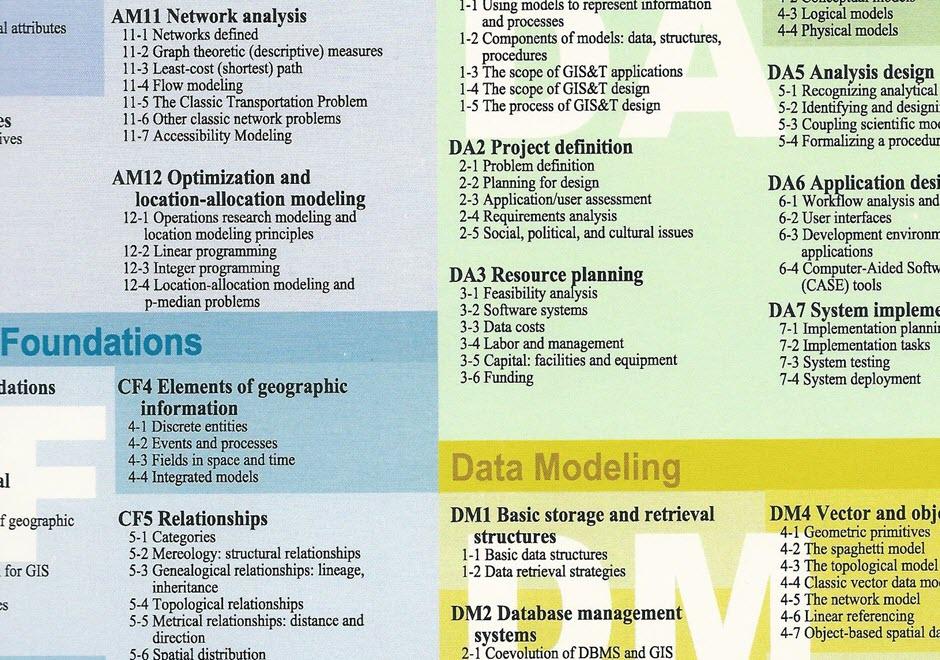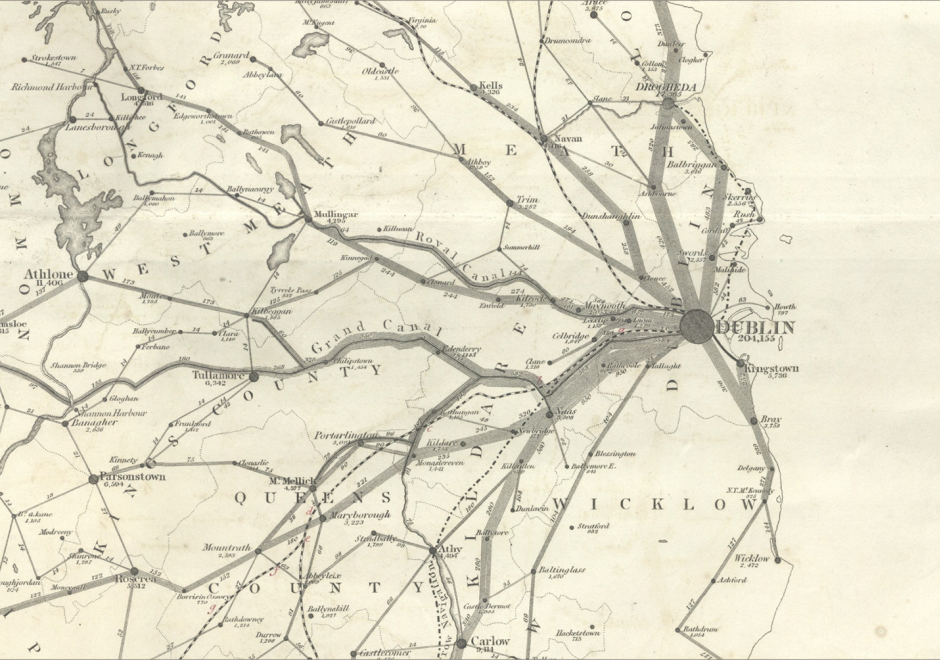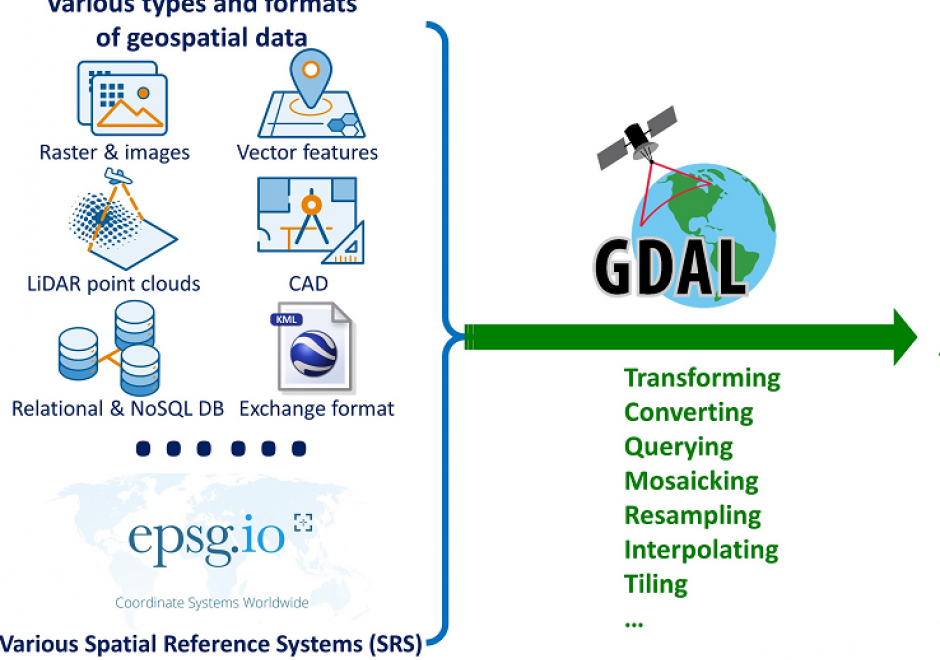DC-09 - Field data technologies

- Identify the measurement framework that applies to moving object tracking
- Explain the advantage of real-time kinematic GPS in field data collection
- Describe an application of hand-held computing or personal digital assistants (PDAs) for field data collection
- Considering the measurement framework applied to moving object tracking, identify which of the dimensions of location, attribute, and time is fixed, which is controlled, and which is measured
- Describe a real or hypothetical application of a sensor network in field data collection
- Outline a combination of positioning techniques that can be used to support location-based services in a given environment



GS-15 - Feminist Critiques of GIS
Feminist interactions with GIS started in the 1990s in the form of strong critiques against GIS inspired by feminist and postpositivist theories. Those critiques mainly highlighted a supposed epistemological dissonance between GIS and feminist scholarship. GIS was accused of being shaped by positivist and masculinist epistemologies, especially due to its emphasis on vision as the principal way of knowing. In addition, feminist critiques claimed that GIS was largely incompatible with positionality and reflexivity, two core concepts of feminist theory. Feminist critiques of GIS also discussed power issues embedded in GIS practices, including the predominance of men in the early days of the GIS industry and the development of GIS practices for the military and surveillance purposes.
At the beginning of the 21st century, feminist geographers reexamined those critiques and argued against an inherent epistemological incompatibility between GIS methods and feminist scholarship. They advocated for a reappropriation of GIS by feminist scholars in the form of critical feminist GIS practices. The critical GIS perspective promotes an unorthodox, reconstructed, and emancipatory set of GIS practices by critiquing dominant approaches of knowledge production, implementing GIS in critically informed progressive social research, and developing postpositivist techniques of GIS. Inspired by those debates, feminist scholars did reclaim GIS and effectively developed feminist GIS practices.